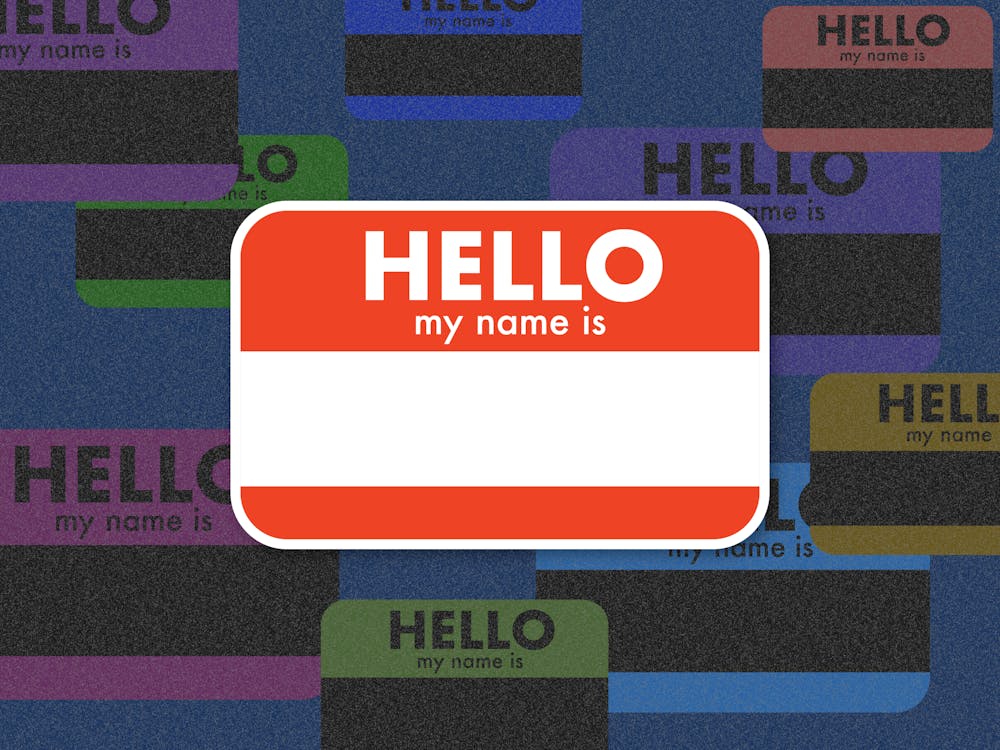My name is Vinay. And it’s pronounced Viy-NEY — not Vinny, Vinyay, or Vené. I have heard it all, and that’s not even including the gross misspellings encountered on a Starbucks latte cup or fast food ticket. But no matter how many times I hear a letter or syllable out of place, it still stings, and I feel it in my core.
I don’t think this feeling comes out of a selfish desire to simply be known by my name the way I understand it but because my name is more than just a name. It’s a reflection of my heritage and ancestry; "Vinay" doesn’t refer to just me, it denotes a culture thousands of years old and traditions that hold special significance for me and millions that came before. It’s an Indian name, a shortened version of the name Vinayaka, a name of Lord Ganesha, one of the most well-known and worshipped gods in the Hindu faith.
I did not always know all of this — or attach such deep significance to it. In fact, I used to be embarrassed of my name, especially in school as I saw the teacher hesitantly approach it on the attendance list. No special looks or attention were paid to Josh, Nikki, Emma, and Matt and their normal, American names. But my Indian name stood out so I stood out. I was othered before I even had the chance to speak. And so when my teachers inevitably pronounced my name with a misplaced emphasis or scrambled letters, I quietly said, “here” and chose to not correct them. After all, I did not want to draw even more attention to myself and my differences.
In classes surrounded by white people, in a country dominated by white people, it made sense to blend into the crowd the best I could and quietly go about my business. There are even studies and a common understanding in Indian communities that my ethnic name would lessen my chances for success and opportunities in a white world. Although I can only personally speak to this in the context of my own experiences, this slow and often inadvertent erasure of foreign names permeates African, Asian, and Hispanic communities: all of which place special cultural significance on names.
In considering writing this piece, I contemplated what was the impetus that empowered me to no longer accept the whitewashing — the perversion — of my name. Pondering this I settled on the memory of a speech by Uzoamaka Aduba I had watched in my 10th grade English class. I still remember the line that, after 10 years of hiding from my name, gave me chills: “If they can learn to say Tchaikovsky, and Michelangelo, and Dostoyevsky, then they can learn to say Uzoamaka.” I realized not only the significance of Aduba’s story but also that I had betrayed myself, my family, and my culture by ignoring the mispronunciations and vulgarizing nicknames.
Why is it that Americans can pronounce Tchaikovsky and Socrates but not Vinay? Is it because all these famous men were white — that their names deserve more attention, more correctness than my own? In contemplating that question posed by Aduba, everything suddenly clicked for me; in that moment, I reclaimed my name and discarded those feelings of embarrassment and shame. When my teachers said my name wrong I corrected them, even as everyone’s heads turned in my direction. When I ordered food, I spelled my name for the cashiers, making sure they got each letter right.
Coming to college, I have had too many conversations to count with people of color who have decided to make a concerted effort to reclaim their name in the classroom, in their personal relationships, and in life. It is a liberating experience and has been empowering to be surrounded by so many people who have felt those same feelings of shame, as well as guilt of their shame. And this trend makes sense. As people dive into new experiences and settings they feel more empowered to “reinvent” themselves, or in this case, reclaim themselves.
Either way, it should not take nearly 18 years of life for people of color to be able to take pride in who they are, where they come from, and how their name represents all of this and more. A couple years ago, my brother and parents fought over why he was named Nikhil instead of just Nick. It broke my heart that his identity was being stripped away by the predominantly white population that comprised his school and his group of friends.
SEE MORE FROM VINAY KHOSLA:
More must be done to make children of color feel not only secure in their name and what it represents, but proud. Professors, teaching assistants, and students alike have an obligation to make the effort to recognize the cultural significance of names and accordingly pronounce and spell them correctly. And at a predominantly white institution, people of color must stand up for themselves (and in solidarity with each other) and their heritage — for not only their name, but also who they are.
What’s in a name? Well — everything.
VINAY KHOSLA is a College first year studying philosophy and political science from Baltimore, Md. His email is vkhosla@sas.upenn.edu.









